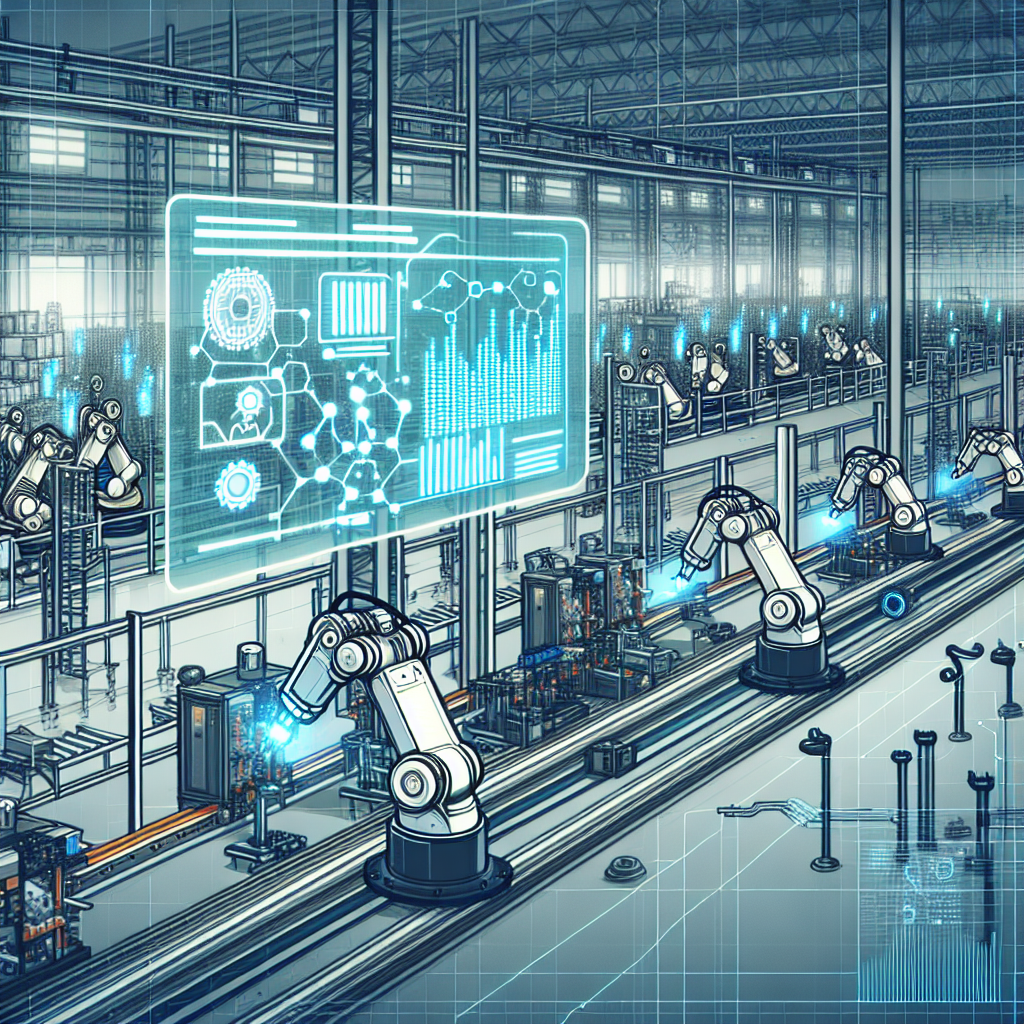Artificial Intelligence (AI) is transforming many industries, and the manufacturing sector is no exception. AI technology is revolutionizing the way products are designed, produced, and distributed, leading to increased efficiency, lower costs, and higher-quality goods. In this article, we will explore how AI is changing the manufacturing industry and the benefits it brings.
One of the key ways AI is revolutionizing manufacturing is through predictive maintenance. By using AI algorithms to analyze data from sensors and equipment, manufacturers can predict when machines are likely to fail and schedule maintenance before any issues occur. This not only reduces downtime and maintenance costs but also extends the lifespan of equipment, leading to increased productivity and profitability.
Another area where AI is making a significant impact is in quality control. AI-powered systems can analyze vast amounts of data to detect defects or anomalies in products, ensuring that only high-quality goods are shipped to customers. This not only improves customer satisfaction but also reduces waste and rework, saving manufacturers time and money.
AI is also being used to optimize production processes. By using AI algorithms to analyze data from sensors and production lines, manufacturers can identify inefficiencies and bottlenecks in their operations and make real-time adjustments to improve productivity. This leads to faster production times, lower costs, and higher output levels.
Furthermore, AI is enabling manufacturers to personalize products and services to meet the specific needs of individual customers. By using AI algorithms to analyze customer data and preferences, manufacturers can create customized products and services that are tailored to each customer’s unique requirements. This not only enhances customer satisfaction but also increases brand loyalty and revenue.
In addition to these benefits, AI is also helping manufacturers to improve supply chain management. By using AI algorithms to analyze data from suppliers, shipping routes, and inventory levels, manufacturers can optimize their supply chains to reduce costs, improve delivery times, and minimize risks. This leads to a more efficient and resilient supply chain that can adapt to changing market conditions and customer demands.
Overall, AI is revolutionizing the manufacturing industry by enabling manufacturers to improve efficiency, quality, and customer satisfaction. By harnessing the power of AI technology, manufacturers can stay ahead of the competition, reduce costs, and increase profitability in an increasingly competitive global market.
FAQs:
Q: What types of AI technologies are being used in the manufacturing industry?
A: There are several types of AI technologies being used in the manufacturing industry, including machine learning, deep learning, natural language processing, and computer vision. These technologies are being used to analyze data, optimize processes, and improve quality control in manufacturing operations.
Q: How are manufacturers implementing AI in their operations?
A: Manufacturers are implementing AI in their operations by investing in AI-powered software and tools, hiring data scientists and AI experts, and partnering with AI technology providers. By integrating AI into their operations, manufacturers can improve efficiency, reduce costs, and increase productivity.
Q: What are the challenges of implementing AI in the manufacturing industry?
A: Some of the challenges of implementing AI in the manufacturing industry include the high cost of AI technology, the need for specialized skills and expertise, and concerns about data privacy and security. However, many manufacturers are overcoming these challenges by investing in AI training and education, partnering with AI technology providers, and implementing robust data security measures.
Q: How can manufacturers benefit from using AI in their operations?
A: Manufacturers can benefit from using AI in their operations by improving efficiency, reducing costs, increasing productivity, and enhancing quality control. By harnessing the power of AI technology, manufacturers can stay ahead of the competition and meet the demands of today’s fast-paced global market.

